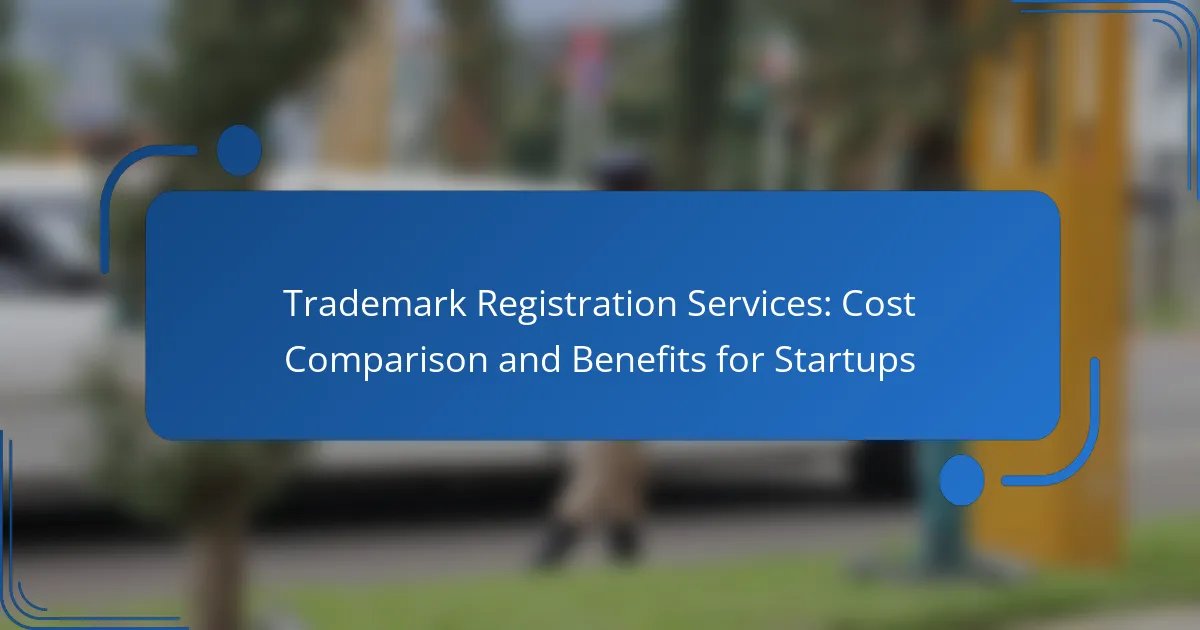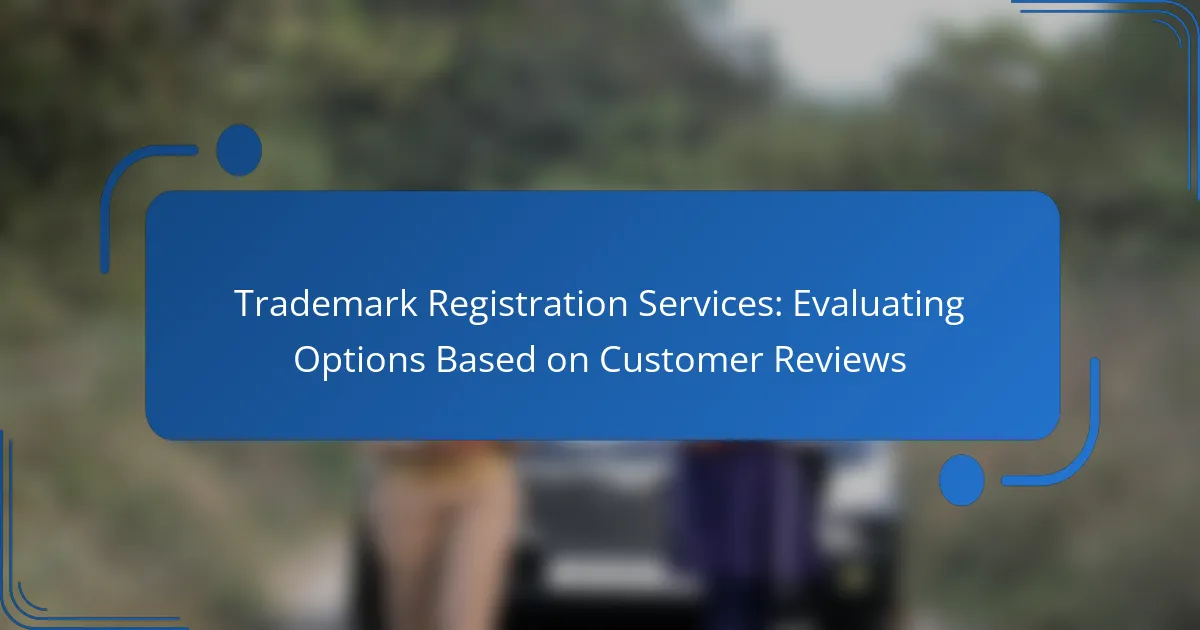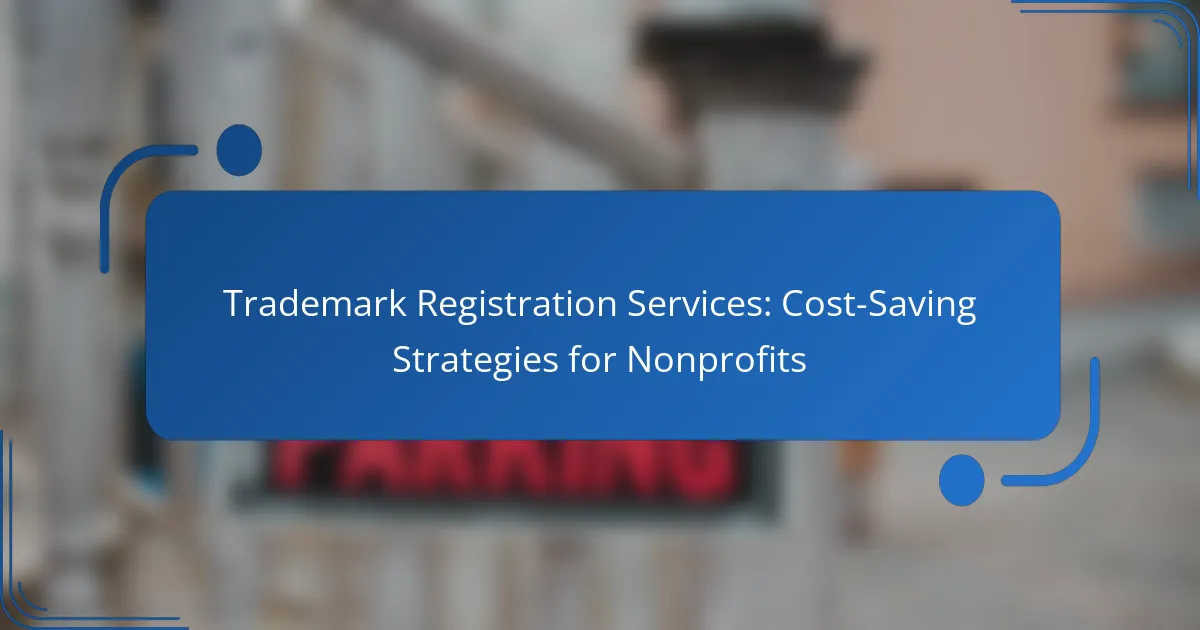For startups, navigating the costs of trademark registration services is essential for effective budgeting and brand protection. These costs can vary widely based on factors such as registration type and legal assistance. Securing a trademark not only safeguards a startup’s identity but also enhances credibility and provides legal advantages in potential disputes.
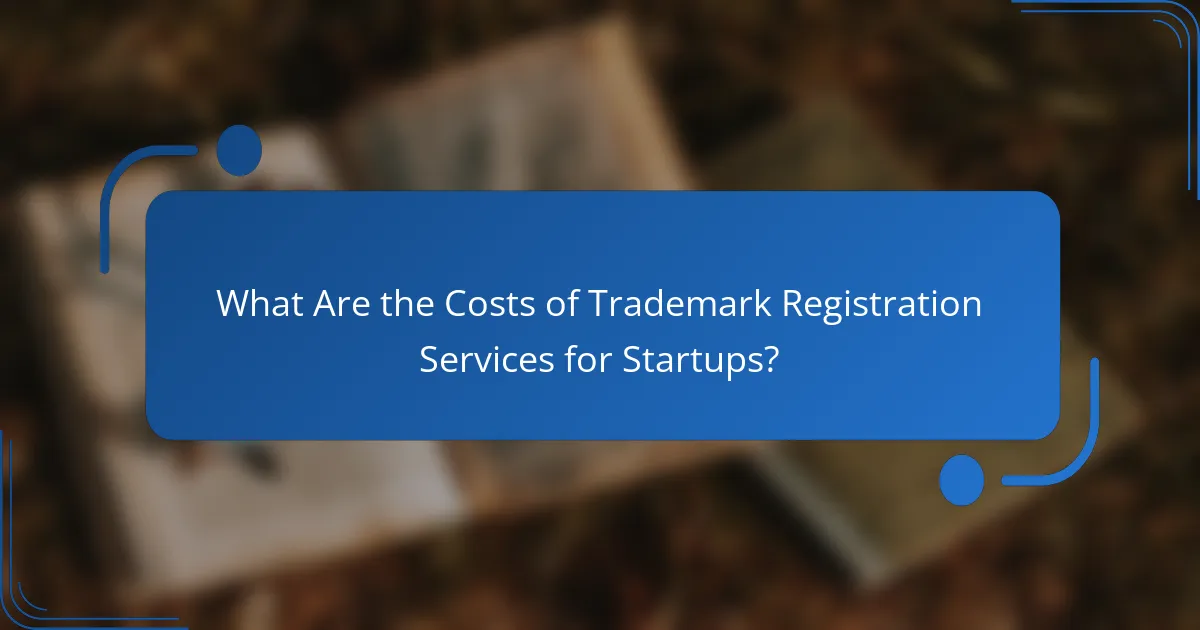
What Are the Costs of Trademark Registration Services for Startups?
The costs of trademark registration services for startups can vary significantly based on factors like the type of registration, legal assistance, and geographical location. Understanding these costs is crucial for startups to budget effectively and protect their brand identity.
Average registration fees
In the United States, the average registration fees for a trademark can range from approximately $225 to $400 per class of goods or services. This fee is paid to the United States Patent and Trademark Office (USPTO) and can vary depending on the application method chosen, such as TEAS Plus or TEAS Standard.
In the European Union, the fees for trademark registration typically start around €850 for one class, with additional costs for each extra class. Startups should consider these fees as part of their overall branding strategy.
Additional costs for legal assistance
While some startups may choose to navigate the trademark registration process independently, hiring legal assistance can add to the overall costs. Legal fees for trademark attorneys can range from a few hundred to several thousand dollars, depending on the complexity of the case and the attorney’s experience.
Investing in legal help can be beneficial, as an attorney can provide guidance on trademark searches, application preparation, and potential disputes, ultimately saving time and resources in the long run.
State-specific fees
In addition to federal registration fees, some states in the U.S. have their own trademark registration processes and associated fees. These state fees can range from $50 to $150, depending on the state and the number of classes being registered.
Startups should check their specific state regulations to determine if state registration is necessary or beneficial for their business operations.
International registration costs
For startups looking to expand their brand internationally, trademark registration costs can increase significantly. The Madrid Protocol allows for international registration, with fees starting around €300 for the first class and additional fees for each subsequent class and country.
Startups should evaluate their target markets and consider the costs associated with protecting their trademarks abroad, as this can be a crucial step in global brand strategy.

What Are the Benefits of Trademark Registration for Startups?
Trademark registration offers startups essential advantages, including brand protection, enhanced credibility, and legal advantages in disputes. Securing a trademark helps establish a unique identity in the marketplace, which can be crucial for long-term success.
Brand protection
Registering a trademark provides legal protection against unauthorized use of your brand. This means competitors cannot easily copy your brand name, logo, or slogan, reducing the risk of market confusion.
Additionally, a registered trademark can deter potential infringers, as it signals that you have taken steps to protect your intellectual property. Startups should consider conducting a trademark search before registration to ensure their desired mark is available and not already in use.
Increased credibility
A registered trademark enhances your startup’s credibility with customers, investors, and partners. It signals professionalism and commitment to your brand, which can lead to increased trust and loyalty.
Moreover, having a trademark can make your business more attractive to potential investors, as it indicates a level of seriousness and foresight in protecting your brand’s value. This credibility can be a deciding factor in securing funding or partnerships.
Legal advantages in disputes
Trademark registration provides significant legal advantages in case of disputes. If someone infringes on your trademark, having it registered gives you stronger grounds to take legal action and seek remedies.
In many jurisdictions, registered trademarks are presumed valid, making it easier to prove ownership in court. This can save time and resources in legal battles, allowing you to focus on growing your startup instead of dealing with disputes.
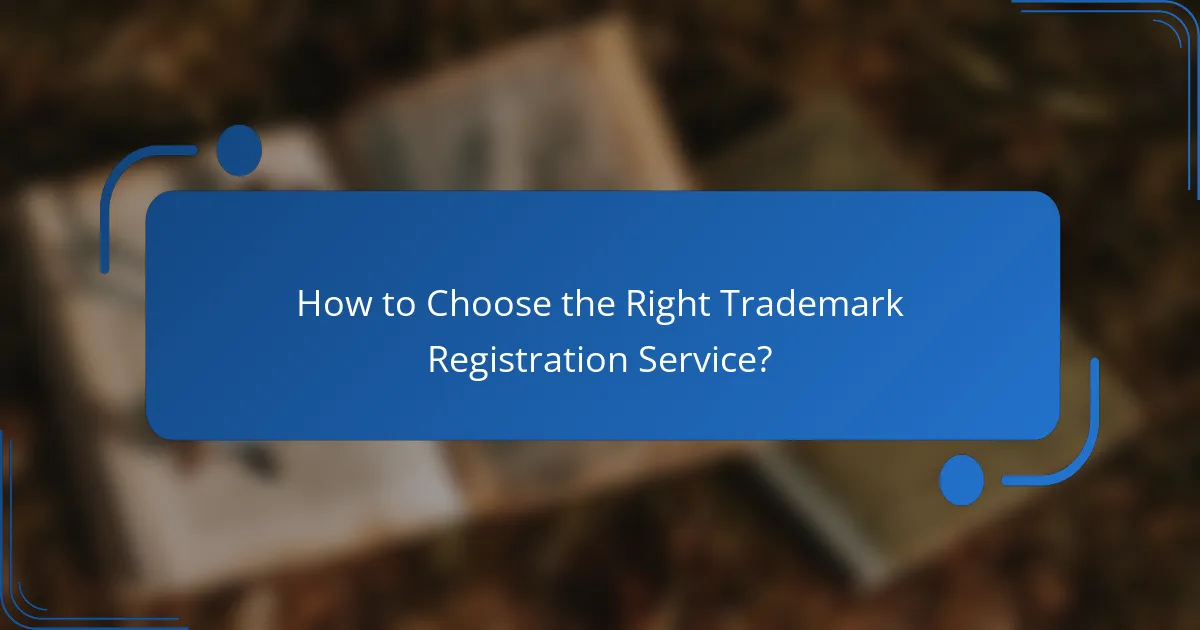
How to Choose the Right Trademark Registration Service?
Selecting the right trademark registration service involves evaluating the provider’s reputation, pricing, and the specific services they offer. Startups should prioritize providers that offer comprehensive support, including trademark searches, filing, and legal advice, to ensure their brand is protected effectively.
Comparison of top service providers
When comparing trademark registration services, consider well-known providers like LegalZoom, Trademarkia, and Incfile. LegalZoom typically offers a range of packages starting from around $200, while Trademarkia may have lower initial costs but additional fees for comprehensive services. Incfile often bundles trademark registration with business formation services, which can be beneficial for startups.
Each provider has its strengths; for instance, LegalZoom is known for its customer service, while Trademarkia excels in trademark searches. Evaluate what features are most important for your startup, such as speed, cost, and additional legal support.
Factors to consider
Key factors to consider when choosing a trademark registration service include cost, processing time, and customer support. Look for transparent pricing structures that outline all potential fees, as hidden costs can significantly impact your budget. Processing times can vary, with some services offering expedited options for an additional fee.
Also, consider the level of customer support provided. A service that offers direct access to legal professionals can be invaluable, especially for startups unfamiliar with trademark law.
Customer reviews and ratings
Customer reviews and ratings provide insight into the reliability and effectiveness of trademark registration services. Websites like Trustpilot and Better Business Bureau can help you gauge user experiences. Look for services with consistently high ratings and positive feedback regarding their ease of use and customer service.
Be cautious of services with numerous negative reviews, especially those highlighting issues with filing accuracy or hidden fees. A service with a strong reputation can save you time and money in the long run, ensuring your trademark is registered correctly and efficiently.
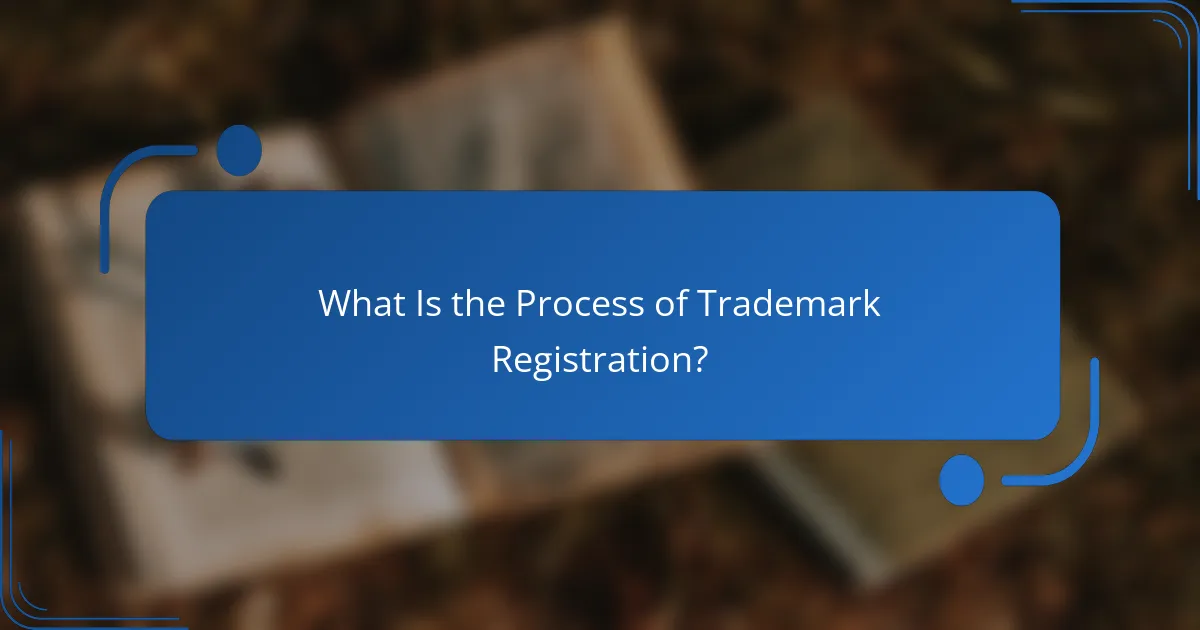
What Is the Process of Trademark Registration?
The trademark registration process involves several key steps to secure legal protection for a brand name, logo, or slogan. It typically includes conducting a trademark search, filing an application with the relevant government authority, and responding to any office actions or oppositions that may arise during the review process.
Steps to file a trademark application
To file a trademark application, start by conducting a comprehensive search to ensure your desired trademark is not already in use. Next, prepare your application, which includes providing details about the trademark, the goods or services it will represent, and the basis for filing. Finally, submit the application to the appropriate trademark office, such as the United States Patent and Trademark Office (USPTO) in the U.S. or the European Union Intellectual Property Office (EUIPO) in Europe.
After submission, be prepared to monitor the application status and respond to any inquiries or requests for additional information from the trademark office.
Timeline for registration
The timeline for trademark registration can vary significantly based on the jurisdiction and the complexity of the application. Generally, the process may take anywhere from several months to over a year. In the U.S., for example, the average time from application to registration is around 8 to 12 months, depending on the workload of the USPTO and any potential objections.
Factors that can influence the timeline include the thoroughness of the initial application, the need for additional documentation, and whether any oppositions are filed by third parties.
Common pitfalls to avoid
One common pitfall is failing to conduct a thorough trademark search before filing, which can lead to conflicts and rejections. Another mistake is submitting an incomplete or inaccurate application, which can delay the process or result in denial. Ensure that the trademark is distinctive and not merely descriptive of the goods or services to avoid issues during examination.
Additionally, be cautious of the renewal deadlines once your trademark is registered, as failing to renew can result in loss of protection. Regularly monitor for potential infringements to safeguard your trademark rights effectively.
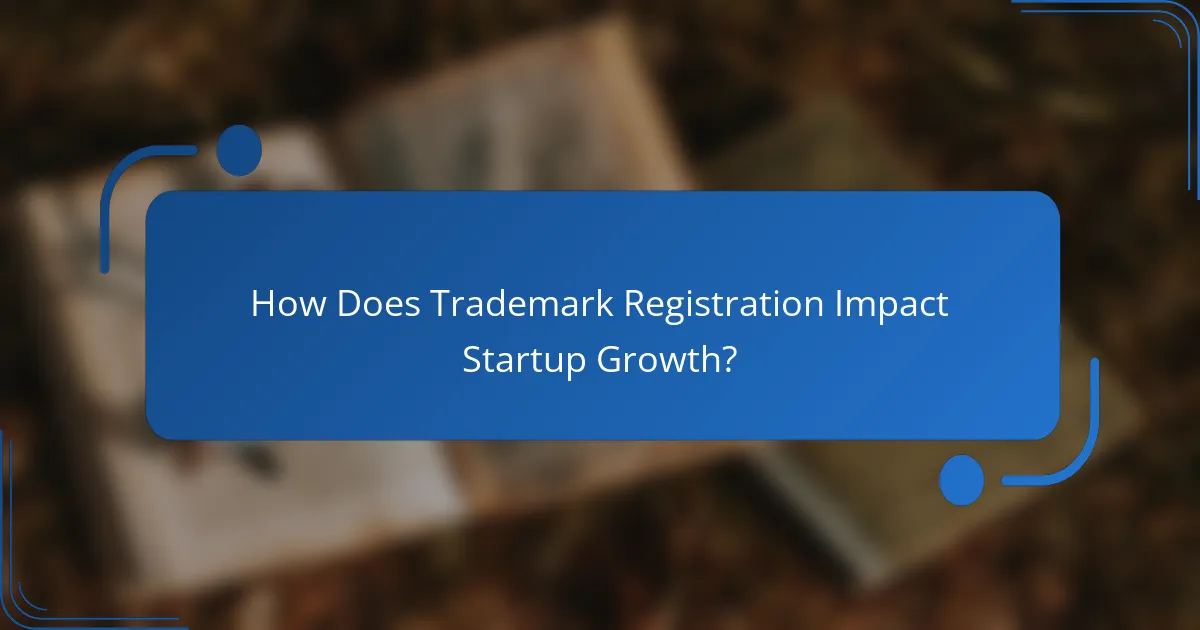
How Does Trademark Registration Impact Startup Growth?
Trademark registration significantly influences startup growth by establishing brand identity and legal protection. It helps startups secure their intellectual property, which can enhance credibility and attract customers and investors.
Attracting investors
Having a registered trademark can make a startup more appealing to investors. It signals that the business is serious about its brand and has taken steps to protect its assets, which can reduce perceived risks.
Investors often look for startups with strong brand recognition, as this can lead to increased market share and profitability. A trademark can strengthen a startup’s position during funding rounds, potentially leading to better investment terms.
Enhancing market position
Trademark registration enhances a startup’s market position by differentiating its products or services from competitors. A unique trademark can create a strong brand identity, making it easier for customers to recognize and choose a startup’s offerings.
Additionally, a registered trademark can prevent competitors from using similar branding, thus maintaining a startup’s competitive edge. This legal protection can lead to increased customer loyalty and higher sales, ultimately contributing to long-term growth.
